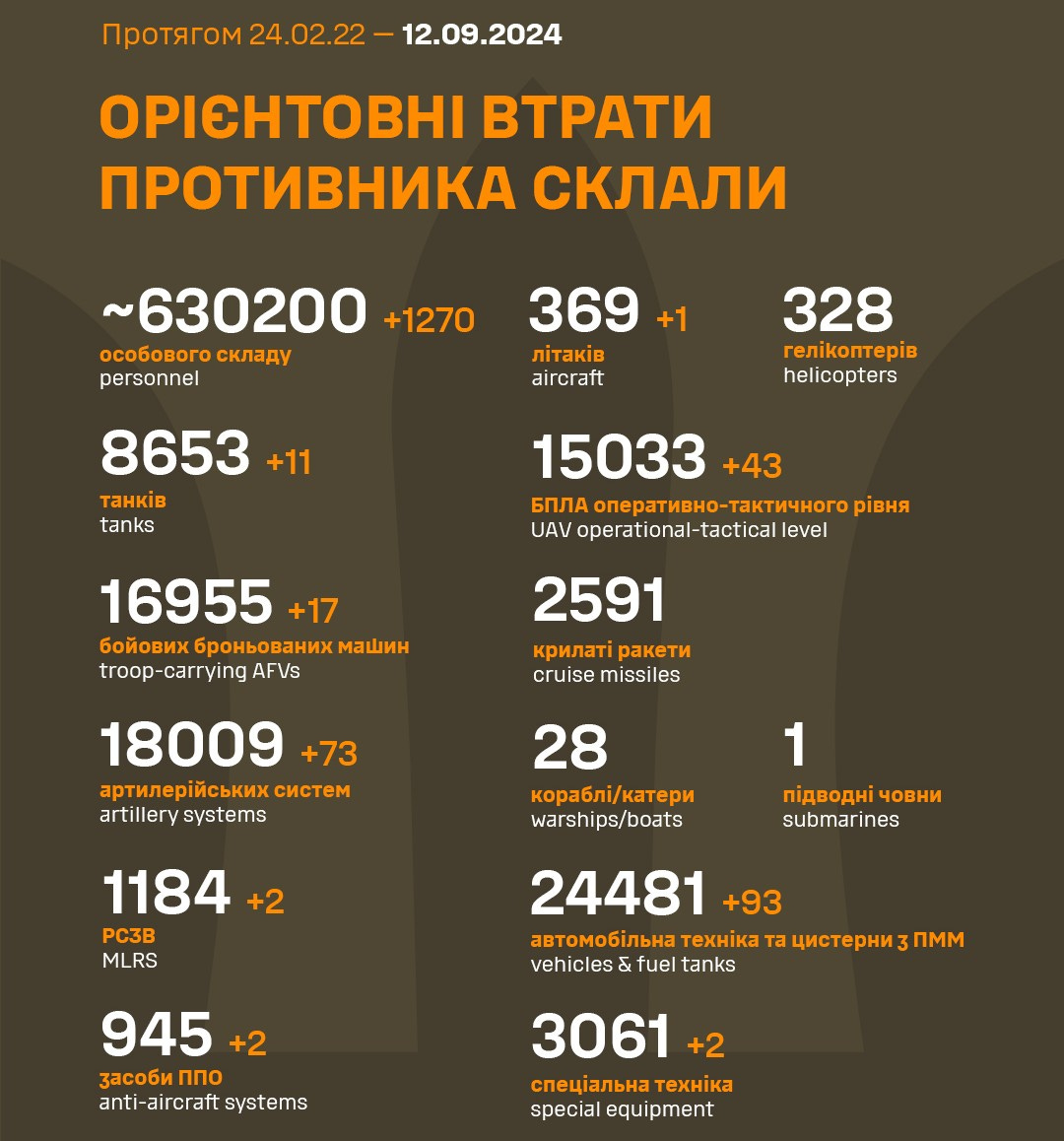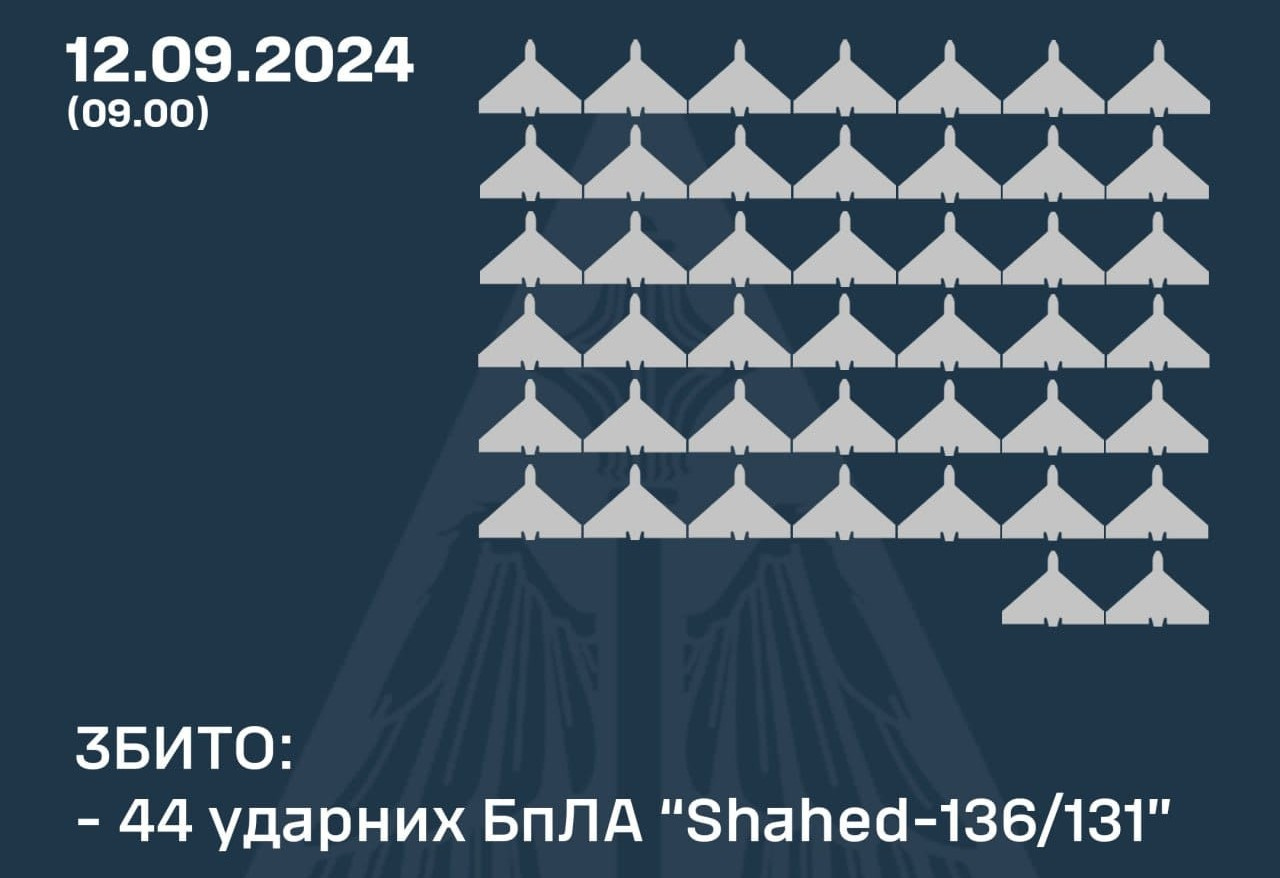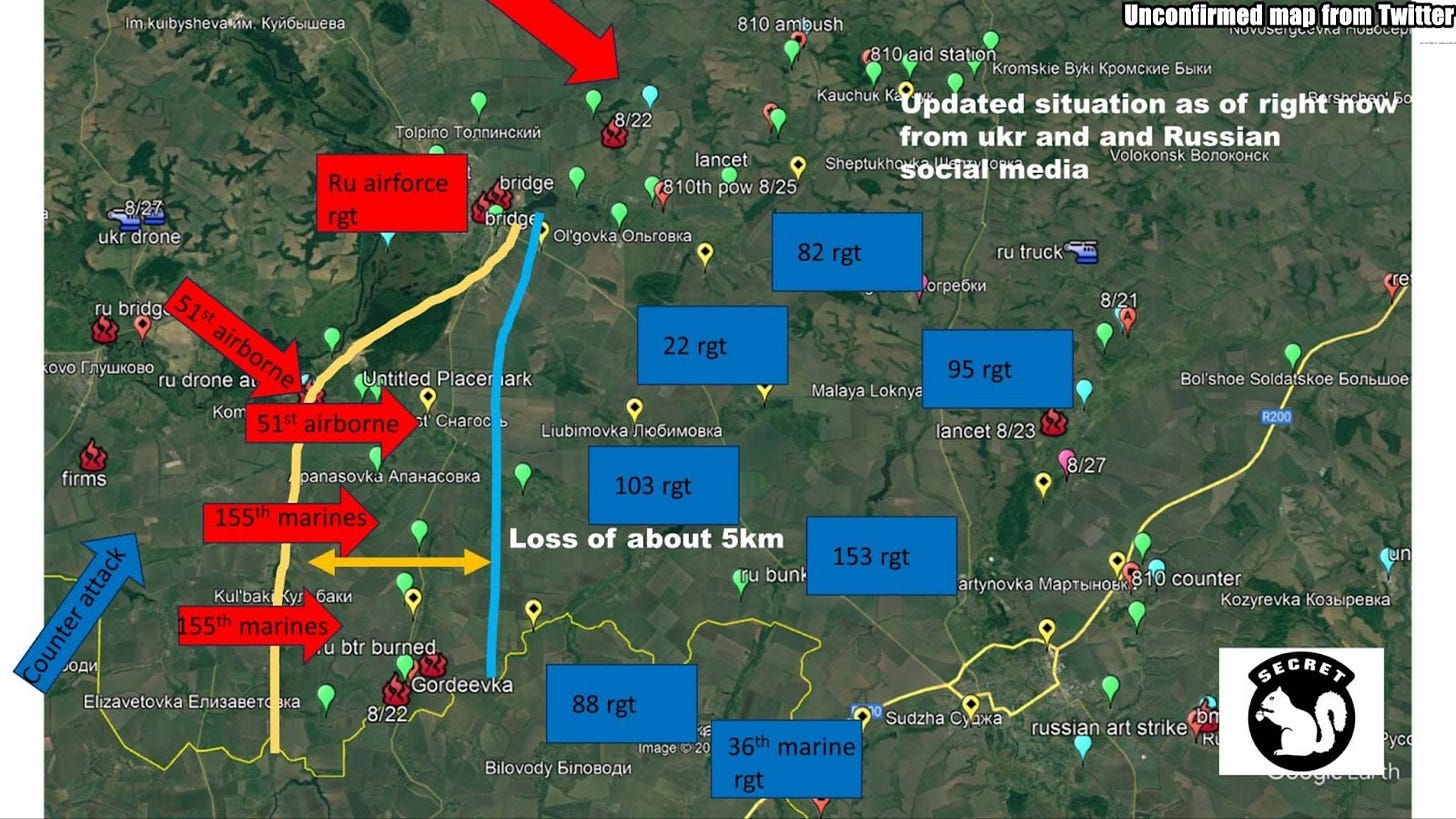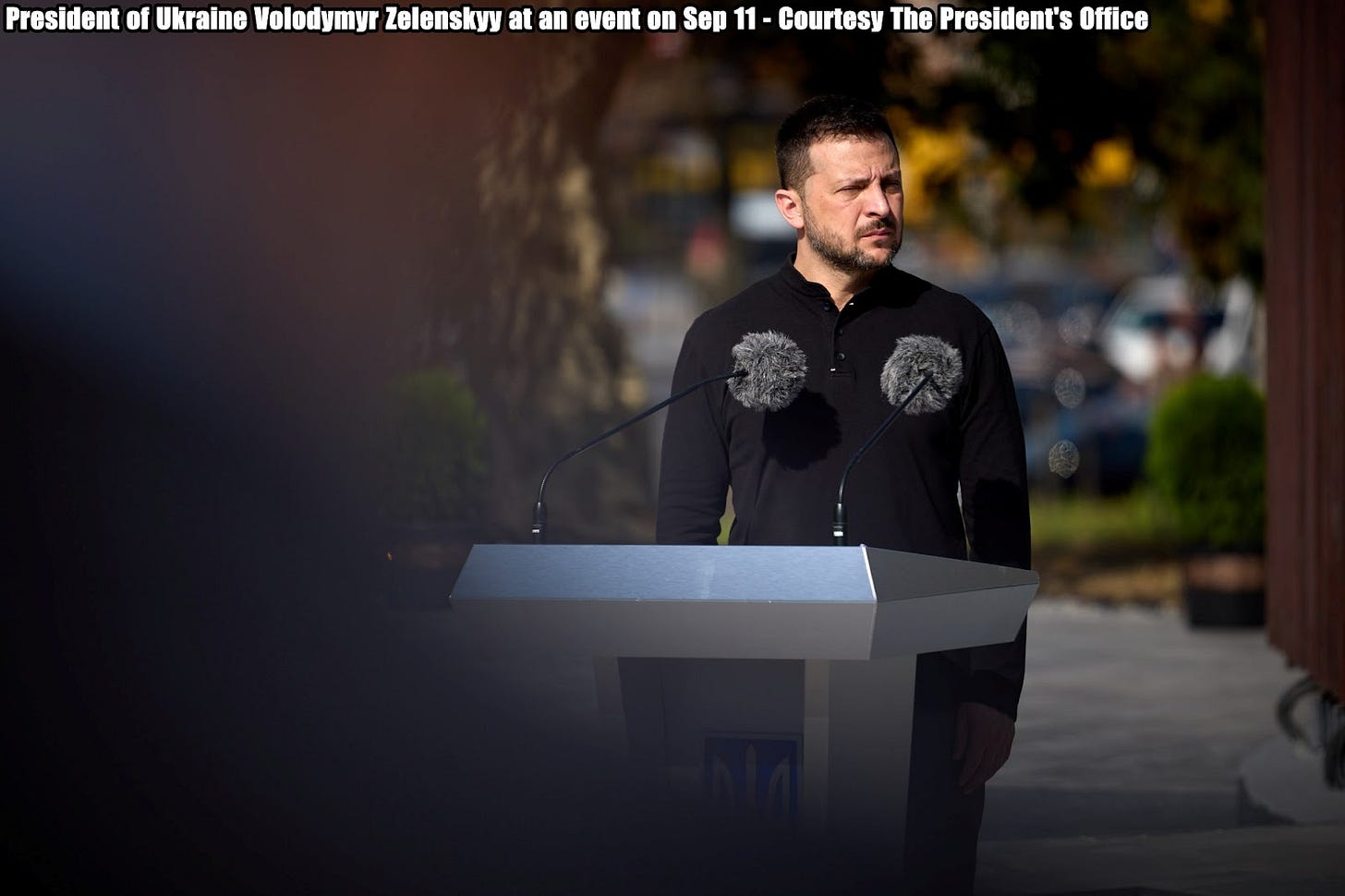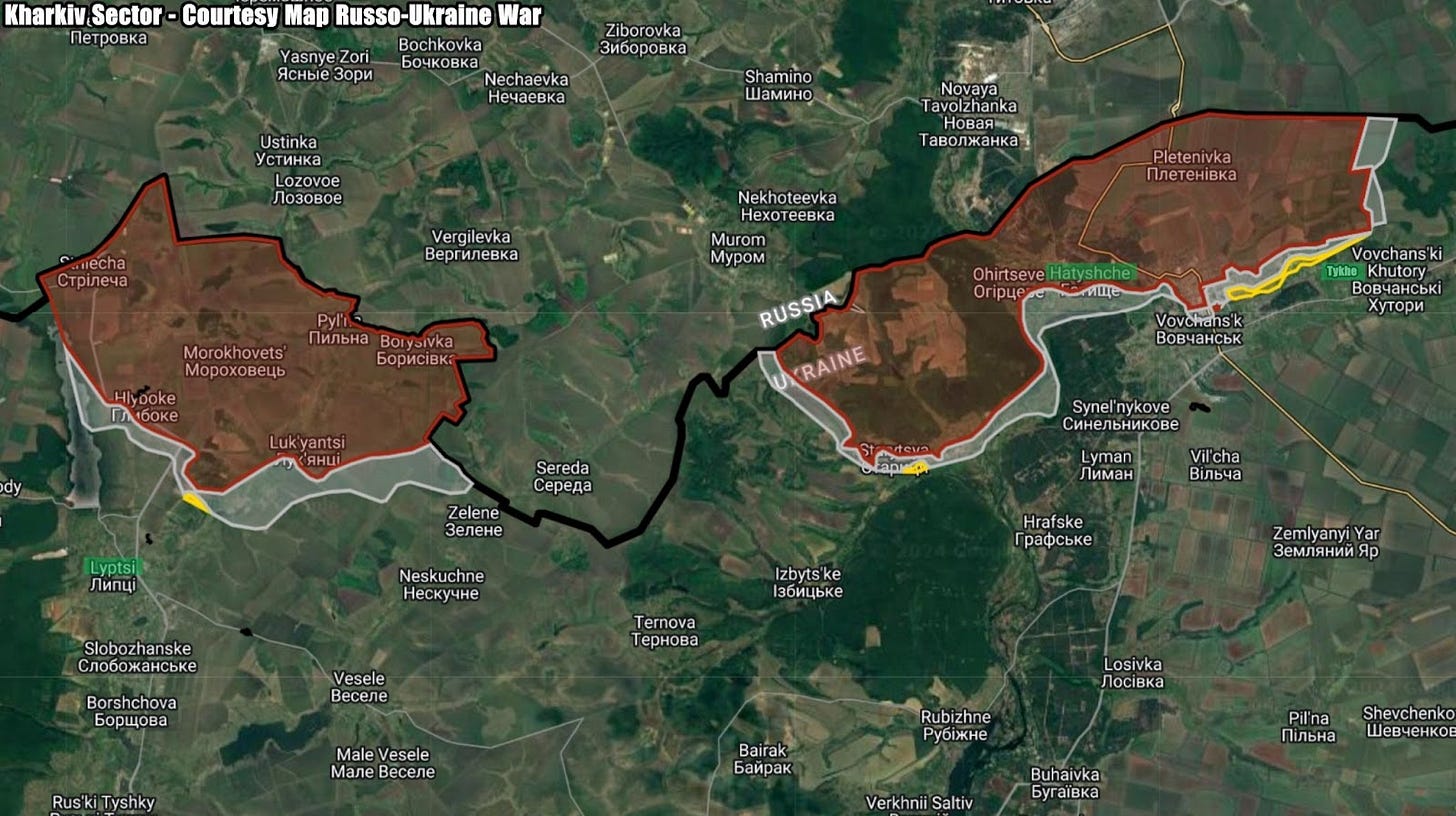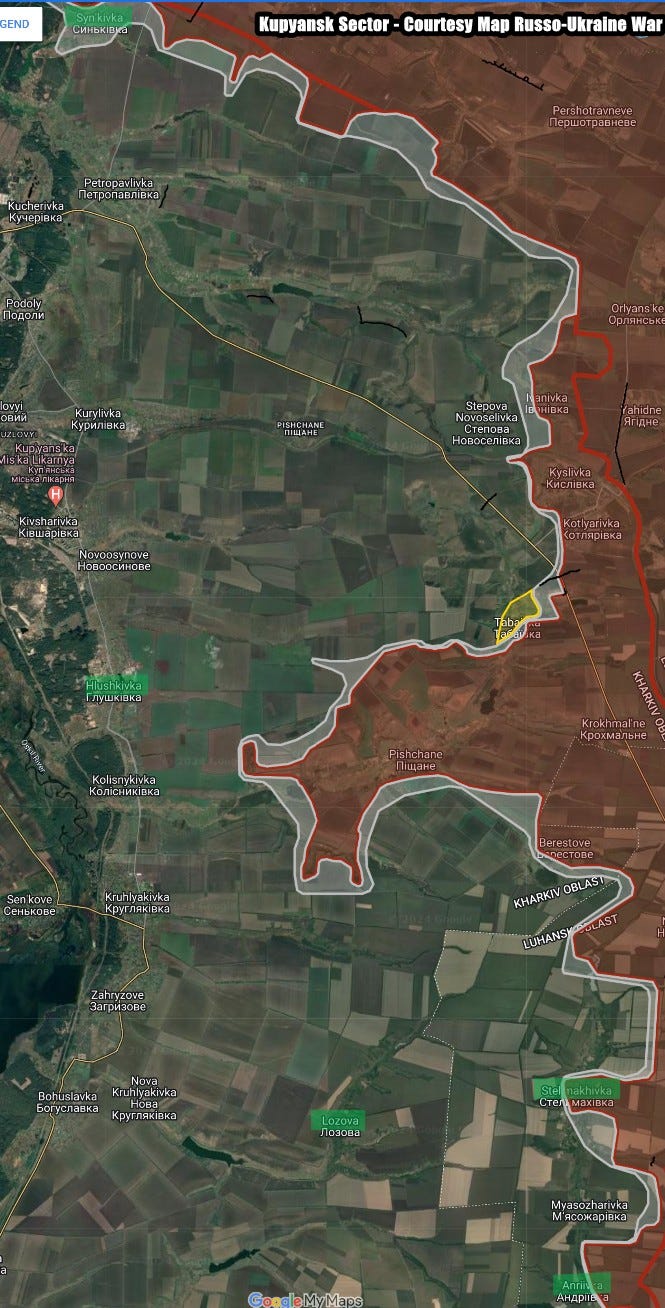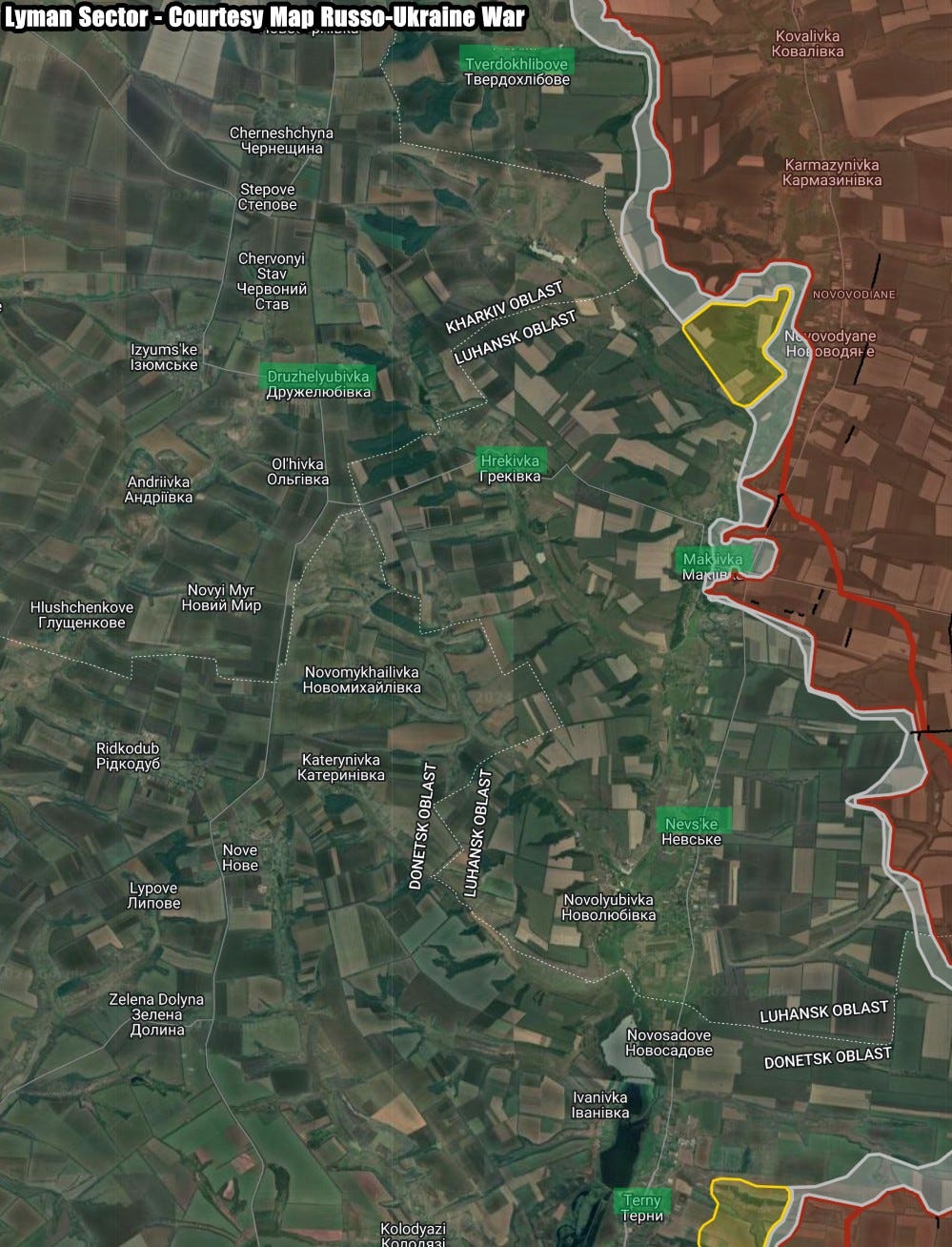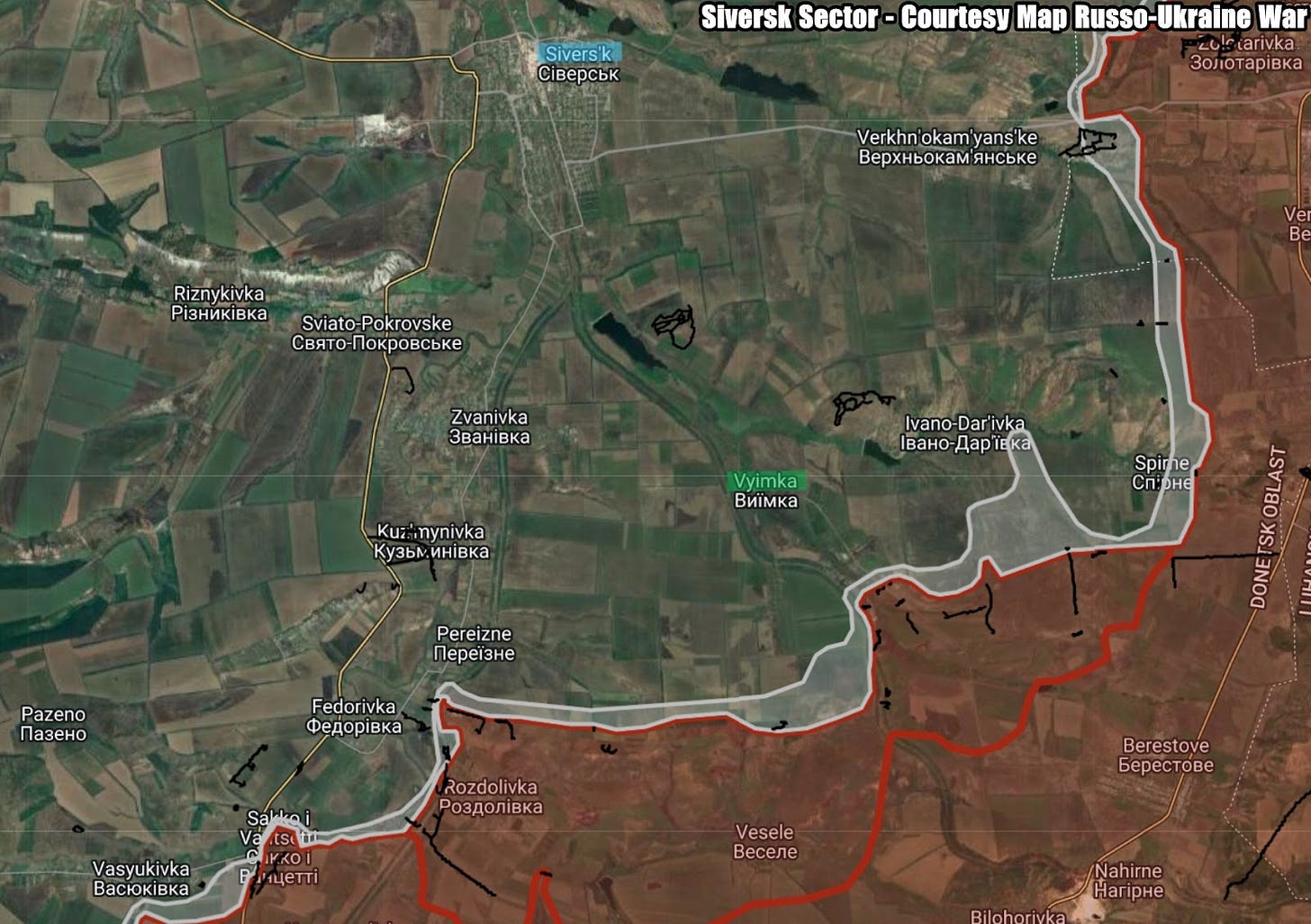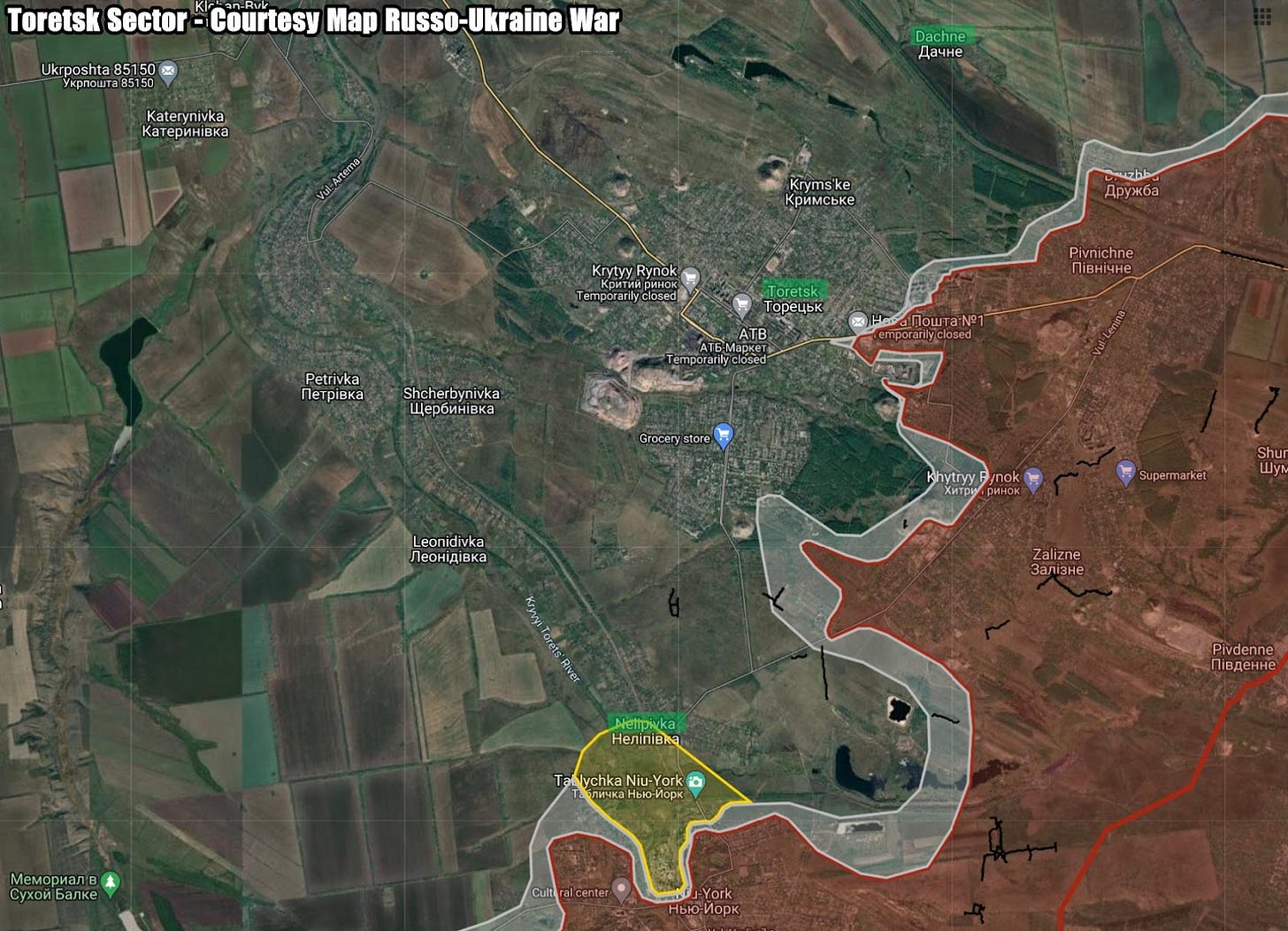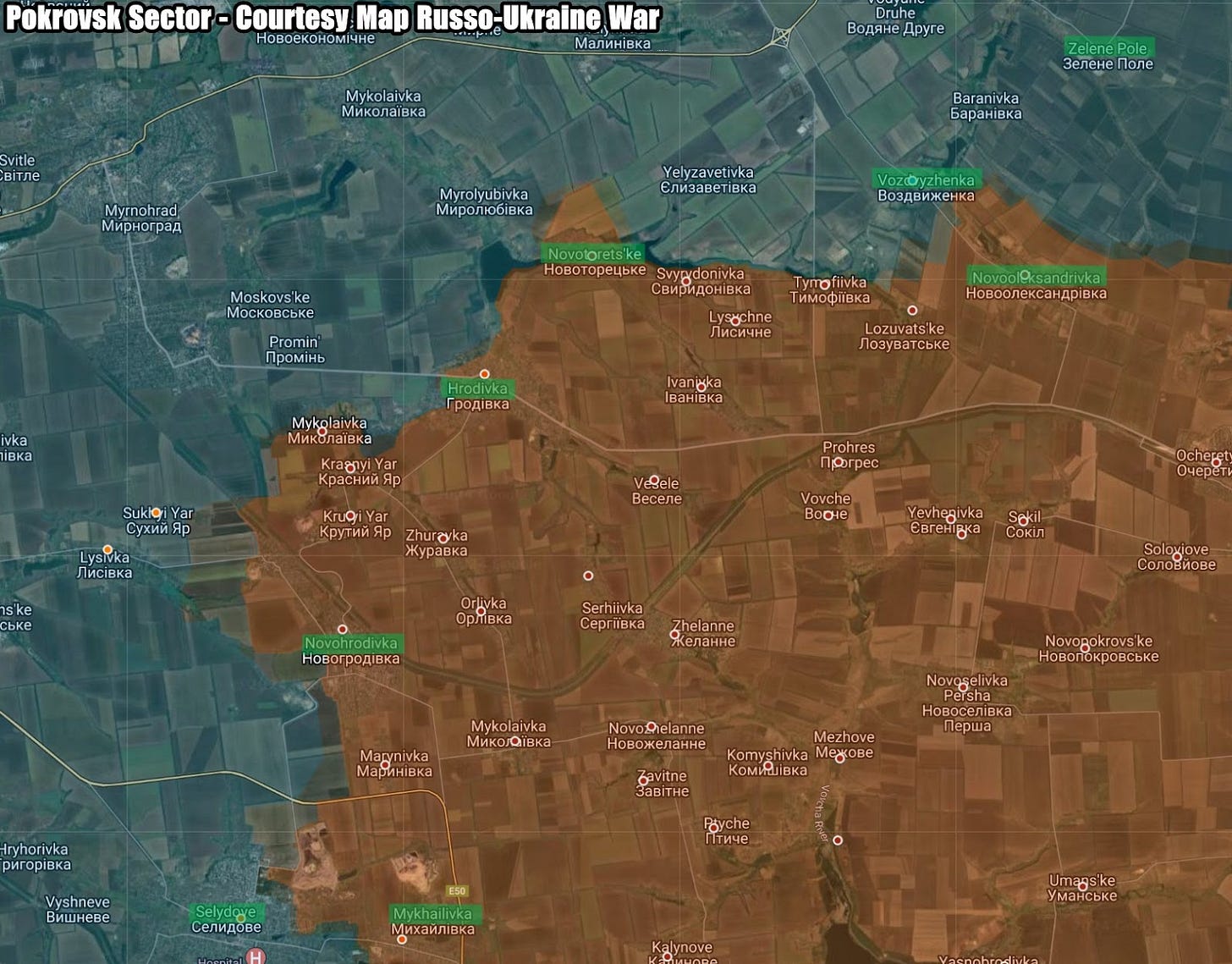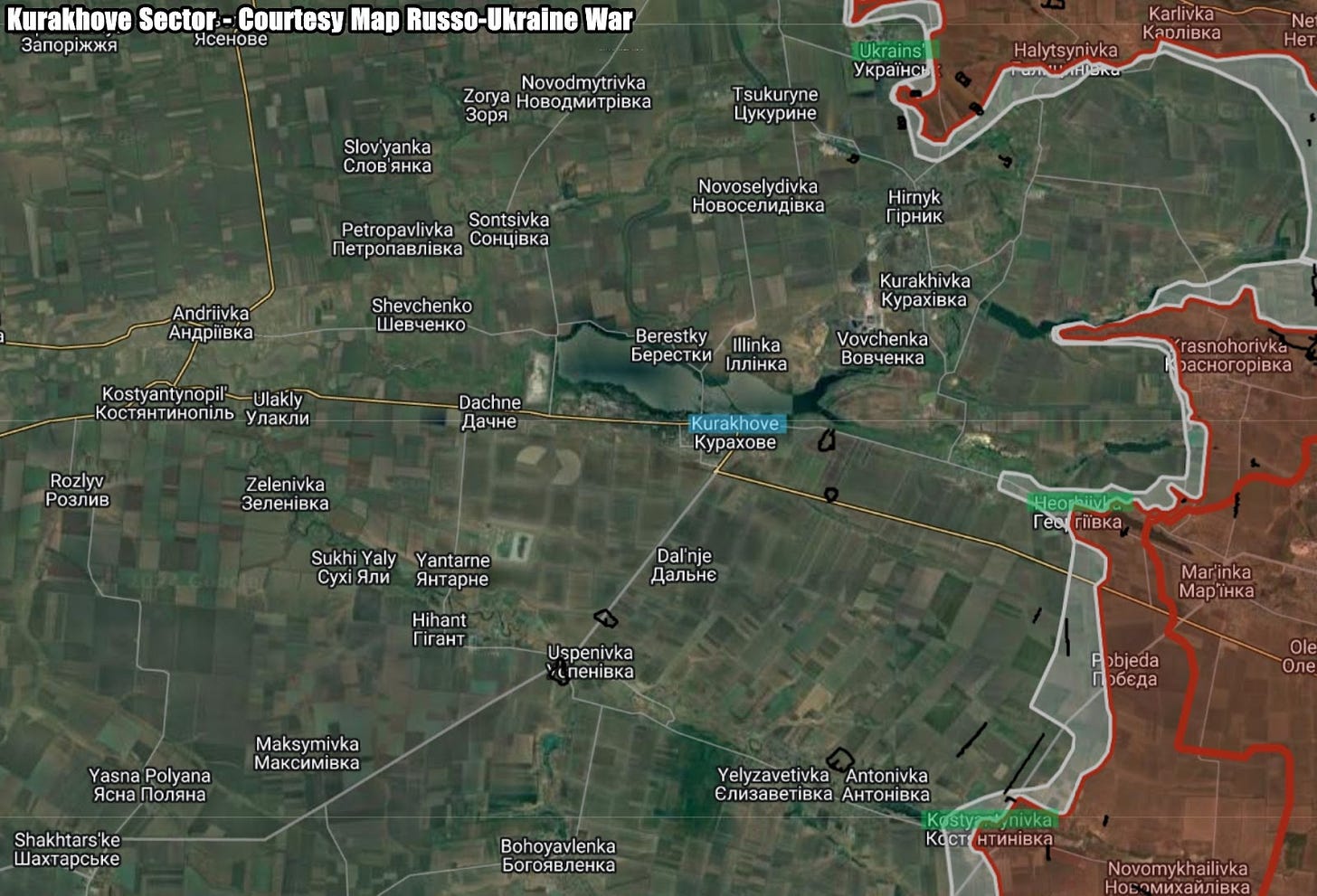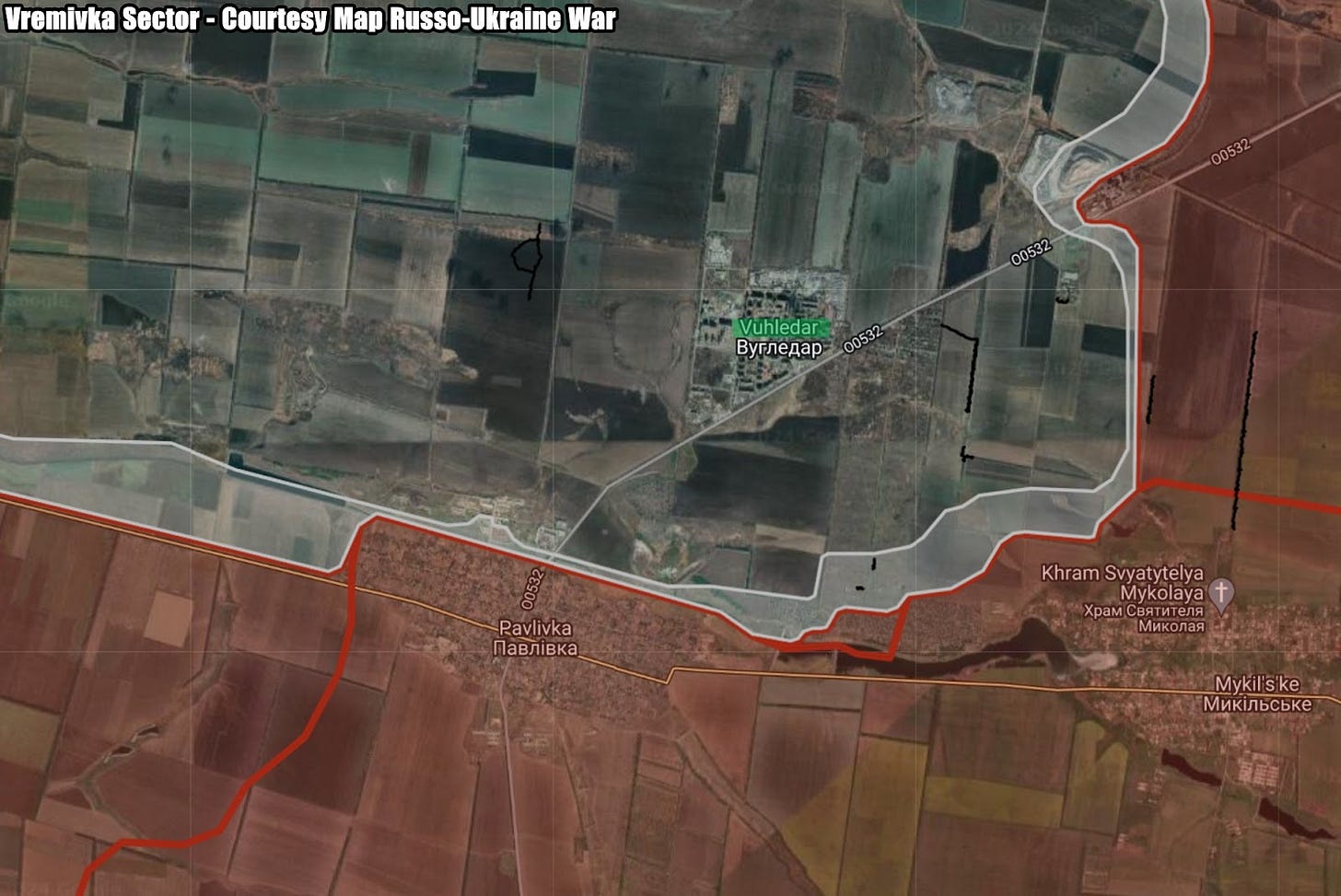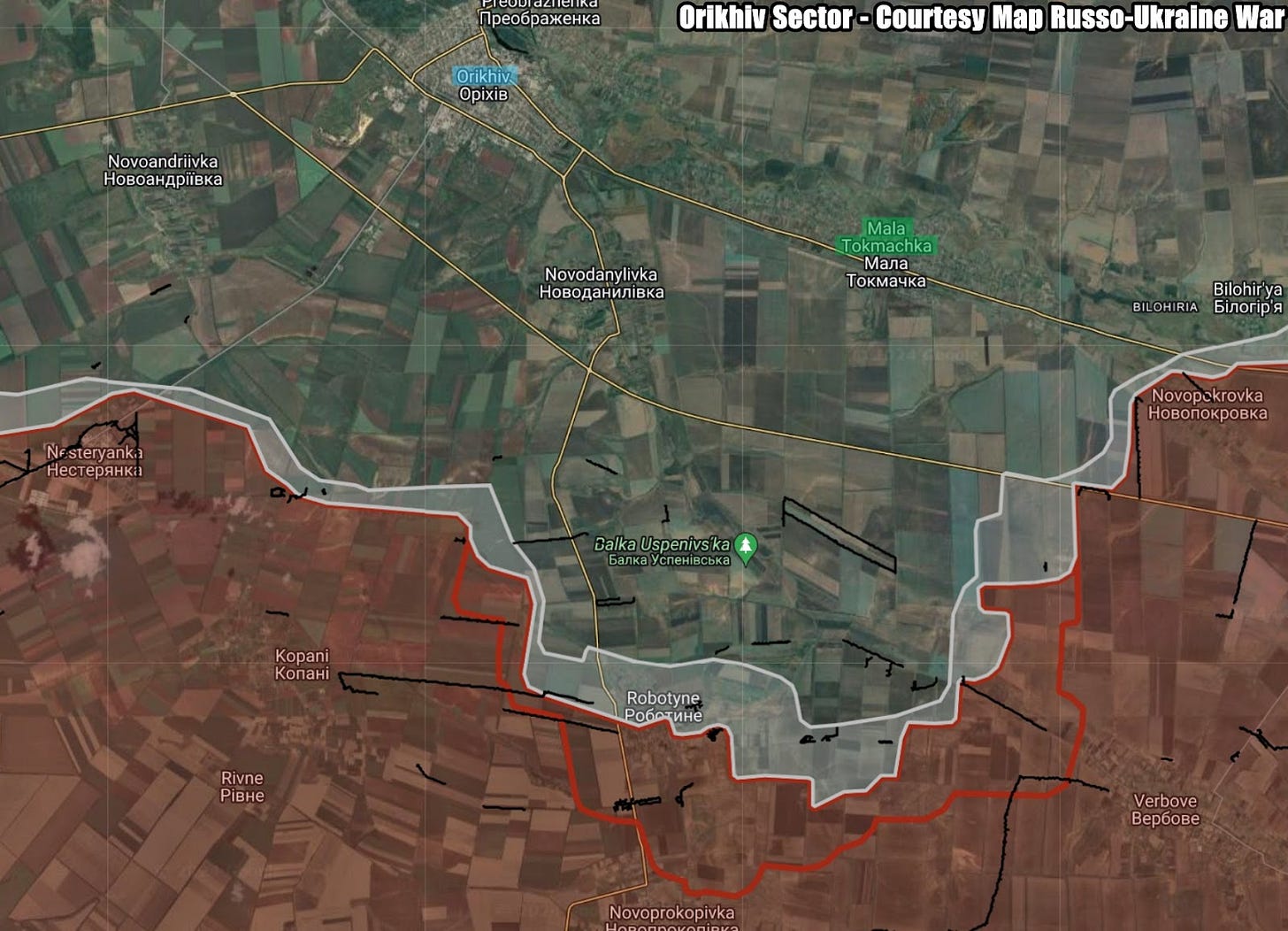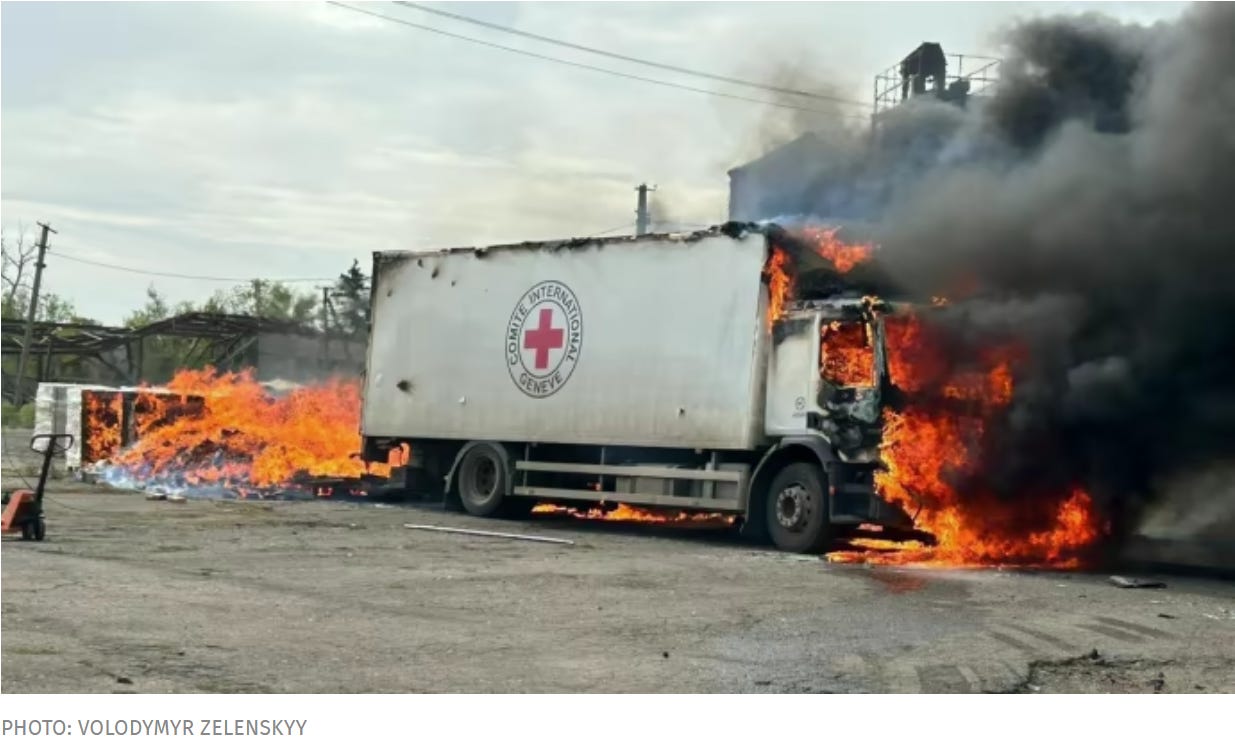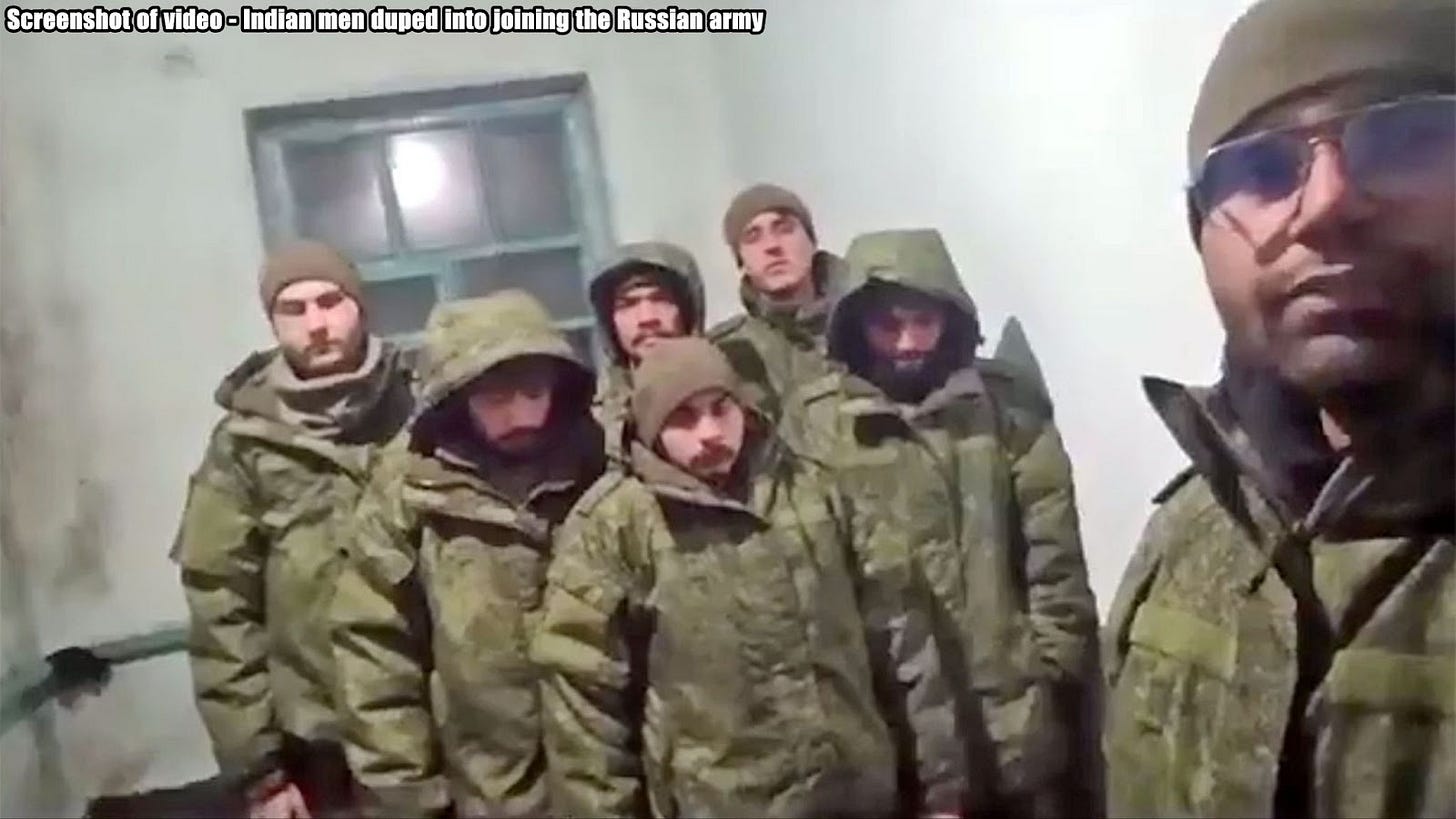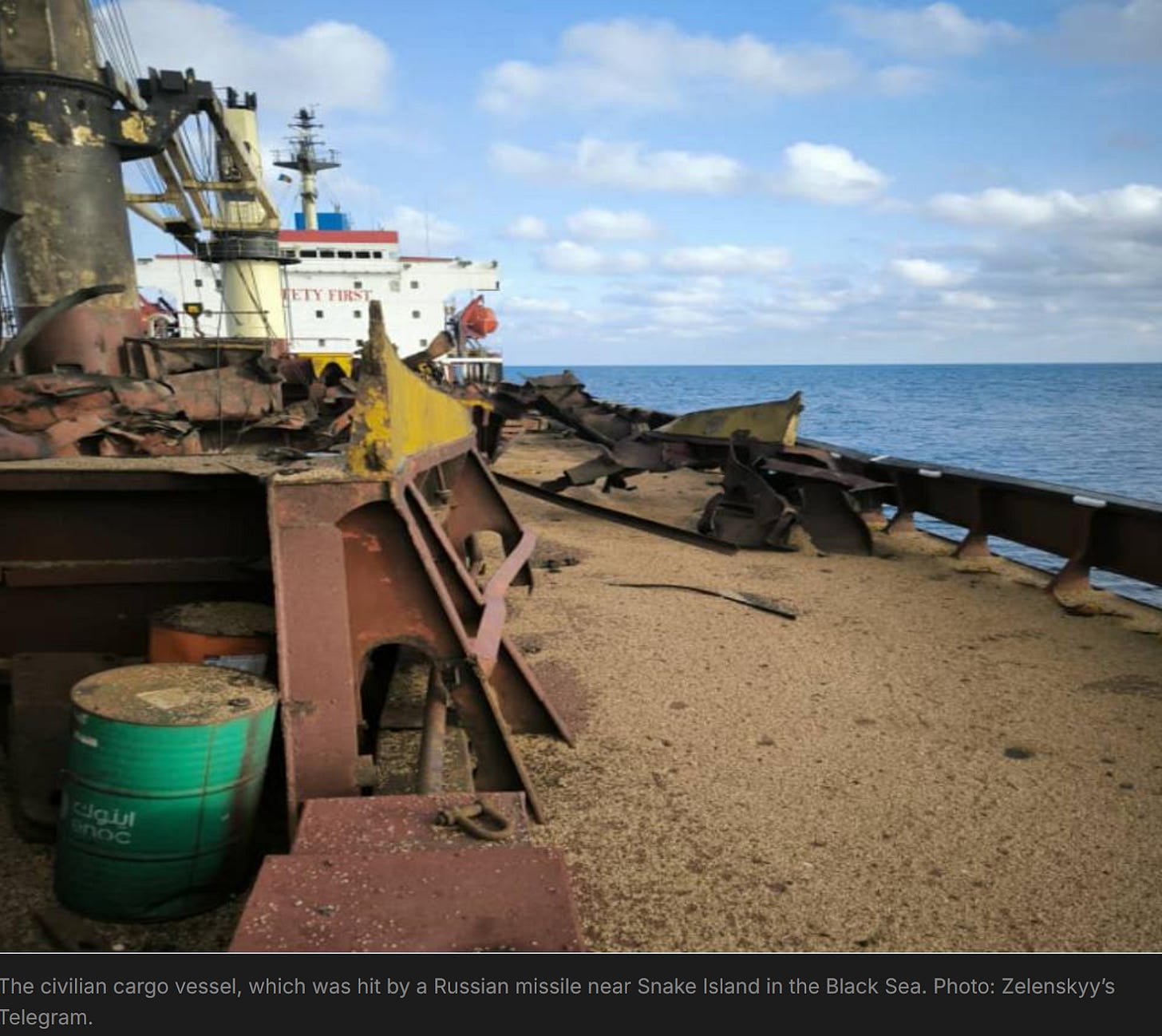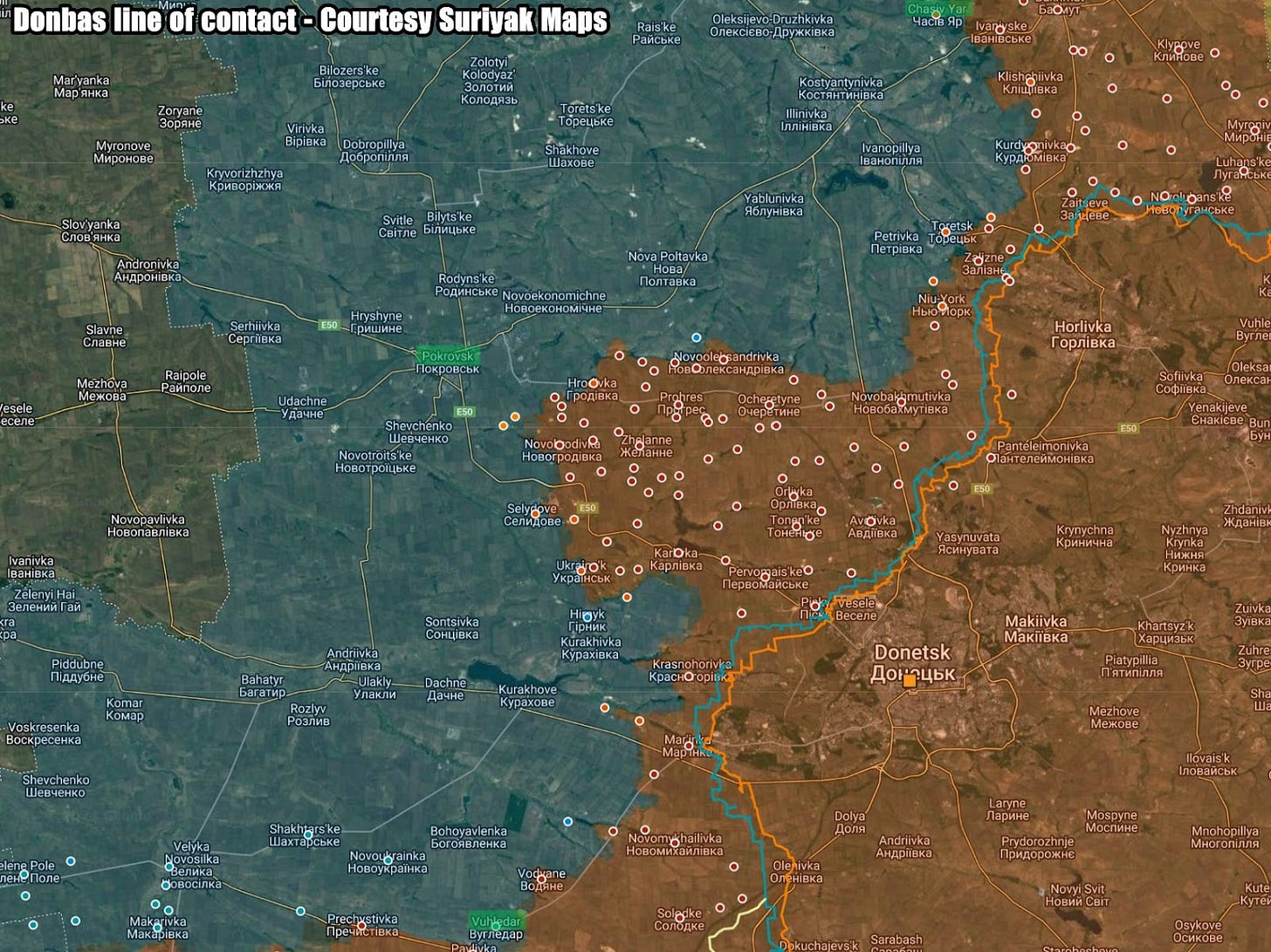Slava Ukraini! In early 2022 I began a Telegram channel aggregating news from a number of sources daily on the war in Ukraine. In June 2023 I began providing a daily draft for the Ukraine War Brief Podcast collecting news from over 70 sources daily, much of which formed the basis of the script. While the Podcast no longer exists I have continued to make this Brief available both on my own Substack and The People’s Media for those who wish to keep up with events on a daily basis.
All the latest news on the Russo-Ukraine War 6 days per week
ALONG THE CONTACT LINE
GSAFU Morning Report
The General Staff of the Armed Forces of Ukraine in its Operational Information update at 22:00 on Sep 11 stated that day 931 of the full-scale invasion of the Russian Federation against Ukraine was about to begin.
During the past day, 93 combat engagements took place. Over the past 24 hours, the enemy carried out 5 missile strikes, 49 air strikes, 625 drone strikes and 3,671 artillery strikes across the positions of Ukrainian forces.
At the same time, Ukrainian soldiers continue to inflict losses in manpower and equipment on the occupying troops, exhausting the enemy along the entire front line and continue to disrupt the plans of Russian occupiers to advance deep into the territory of Ukraine.
Air Force Daily Report
On the night of September 11, 2024, radio engineering troops of the Air Force detected and escorted 34 enemy air attack vehicles. The enemy struck with one Iskander-M ballistic missile from the Krasnodar Territory - Russia, two S-300 anti-aircraft guided missiles from the occupied Donetsk region, 6 Kh-31P anti-radar missiles from the airspace over the Black Sea in the direction of Zmiiny Island, 25- with shock UAVs of the "Shahed" type (launch areas: Kursk, Yeisk - Russia, Chauda - Crimea).
Air force, anti-aircraft missile troops, mobile fire groups, and electronic warfare units of the Defense Forces of Ukraine were involved in repelling the enemy's air attack. As a result of the anti-aircraft battle, 20 attack UAVs were shot down, 5 enemy drones were lost in location on the territory of Ukraine (information about casualties and destruction was not received).
Anti-aircraft defense worked in Kyiv, Kherson, Cherkasy, Sumy, Dnipropetrovsk and Poltava regions.
The Russian Border Incursion
Russian forces begin counterattacks on the western edge of the Kursk salient.
The Institute for the Study of War (ISW), a US based think tank, in its Sep 11 Russian Offensive Campaign Assessment assessed that Russian forces began counterattacks along the western edge of the Ukrainian salient in Kursk Oblast and reportedly seized several settlements northeast and south of Korenevo on September 10 and 11. The size, scale, and potential prospects of the September 11 Russian counterattacks in Kursk Oblast are unclear and the situation remains fluid as of this report. It is premature to draw conclusions about Russia’s new counterattacks and ISW will continue following the situation. Geolocated footage published on September 11 indicates that Russian forces retook positions east of Zhuravli (northeast of Korenevo).
Additional geolocated footage published on September 10 indicates that elements of the Russian 51st Airborne (VDV) Regiment (106th VDV Division) advanced north and northeast of Snagost (south of Korenevo) during a company-sized mechanized assault.
Russian milbloggers claimed that Russian forces launched the mechanized counterattack from the north near Korenevo and that Russian forces quickly advanced into Snagost. Several Russian sources claimed that Russian forces fully seized Snagost, but ISW has not observed visual confirmation of these claims.
Russian sources claimed that elements of the Russian 51st VDV Regiment and 155th Naval Infantry Brigade (Pacific Fleet, Eastern Military District [EMD]) advanced northwest of Snagost and seized Krasnooktyabrskoye; advanced west of Snagost and seized Komarovka and Vishnevka; advanced southwest of Snagost and seized Apanasovka and 10-y Oktyabr; advanced southeast of Snagost and seized Obukhovka; and advanced south of Snagost and seized Byakhovo, Vnezapnoye, and Gordeevka.
A Russian milblogger claimed that elements of the Russian 200th Motorized Rifle Brigade (14th Army Corps [AC], Leningrad Military District [LMD]) seized Olgovka (just east of Korenevo).
Available visual evidence suggests that Russian forces counterattacking in Kursk Oblast are operating in company-sized units and may be using elements of more combat-experienced units to conduct counterattacks. Geolocated footage published on September 10 shows elements of the Russian 51st Airborne (VDV) Regiment (106th VDV Division) conducting a company-seized mechanized assault north of Snagost
Ukrainian forces reportedly began new attacks against the Russian counterattack west of Snagost and throughout the Ukrainian salient in Kursk Oblast. A Ukrainian brigade reportedly operating in Kursk Oblast reported on September 11 that Ukrainian forces began attacking Russian forces' flank west of Snagost after the initial Russian counterattack into Snagost. An open-source X (formerly Twitter) user claimed that Ukrainian forces are operating near Kulbaki (southwest of Snagost and roughly five kilometers from the international border), suggesting that Ukrainian forces recently advanced near the settlement, reportedly after crossing the international border.
-
Russians launched counter-offensive in Kursk Oblast, everything goes as planned – Zelenskyy
Volodymyr Zelenskyy at a joint press conference with his Lithuanian counterpart Gitanas Nausėda in Kyiv on 12 September, has confirmed that Russian troops have launched a counter-offensive in Kursk Oblast. Interfax Ukraine reports.
"The Russians have launched a counter-offensive. This is going in accordance with the Ukrainian plan."
On Sep 11, the Deep State monitoring project reported that the situation on the left flank of the Ukrainian grouping in Russia’s Kursk Oblast has deteriorated, as Russian forces have begun active assault operations.
The Khortytsia operational-strategic group
(Responsible for the northeastern part of Ukraine. )
Kharkiv Sector: Over the last day Ukrainian Defense Forces repelled 3 Russian attacks near Lyptsi, Hatyschche and Tykhe.
Kupyansk Sector: Russian Forces carried out 16 offensive actions against Ukrainian defensive positions near Synkivka, Hlushkivka, Lozova, Stelmahivka and Anriivka. The situation is under control.
Lyman Sector: Russian Forces carried out 10 offensive actions against Ukrainian defensive positions near Tverdokhlibove, Druzhelyubivka, Hrekivka, Makiivka, Nevske, and Terny. 2 engagements are ongoing.
Siversk Sector: Ukrainian defenders successfully repelled 1 attack of the enemy in the area of Vyimka.
Kramatorsk Sector: There has been no significant change in the combat environment in the last 24 hours.
Toretsk Sector: Russian forces carried out 5 unsuccessful offensive actions with air support near Dachne, Toretsk and Nelipivka.
The Tavria operational-strategic group
(Responsible for the central-eastern and southeastern part of Ukraine.)
Pokrovsk Sector : The enemy conducted 30 attacks against Ukrainian defences in this area over the last day in the vicinity of Zelene Pole, Novooleksandriivka, Vozdvyzhenko, Novotoretske, Hrodivka, Novohrodivka, Selydove and Mykhaillivka.
Kurakhove Sector: There have been 22 combat engagements of various intensities as Russian forces attempted to advance mainly in the areas of the settlements of Ukrainsk, Heorhiivka and Krasnogorivka. 4 engagements are ongoing.
Vremivka Sector: Russian forces made 1 assault against Ukrainian positions near Vuhledar.
Orikhiv Sector: The situation in this sector has not changed significantly. 2 enemy attacks were repulsed over the last day in the vicinity of Mala Tokmachka
The Odesa operational-strategic group
(Responsible for Kherson, Qırım, (also known as Crimea) and the Black Sea.)
Prydniprovsk Sector: There has been no significant change in the combat environment in the last 24 hours.
TEMPORARILY OCCUPIED TERRITORIES
Nothing significant to report.
THE HOME FRONT
3 Red Cross workers killed in Russian attack on Donetsk Oblast, 2 more injured
Three employees of the International Committee of the Red Cross (ICRC) were killed, and two others were injured in a morning artillery strike on an IRCC humanitarian mission in Viroliubivka of Kostiantynivka hromada on 12 September [a hromada is an administrative unit designating a town, village or several villages and their adjacent territories – ed.] Ukrainska Pravda reported citing Vadym Filashkin, Head of Donetsk Oblast Military Administration and Dmytro Lubinets, Ukrainian Parliament Commissioner for Human Rights
Filashkin said Russian troops launched an artillery strike on the village of Viroliubivka in Kostiantynivka hromada, killing three people and injuring two more.
One of the shells struck the premises of a nearby business where people were present. During the incident, a lorry carrying humanitarian supplies and a car were destroyed.
Lubinets, commenting on the situation, noted that the casualties were all ICRC staff members who were in the lorry when it was shelled. In addition, a residential area in Kostiantynivka was targeted, with seven houses and a power line damaged there.
Dmytro Lubinets called on the ICRC to publicly condemn Russia's actions, which violate the Geneva Conventions, and expressed outrage at the lack of response from international organisations.
Ukrainian President Vladimir Zelensky, commenting on the Russian strike on the humanitarian mission of the International Committee of the Red Cross in the Donetsk region, called on the international community not to remain indifferent.
"In this war, everything is absolutely obvious: Russia is evil, Ukraine is protecting life. And if someone wants to hear "both sides", then in Russia it is perceived only as permission to kill further. The world must react harshly and fundamentally. One cannot remain indifferent - both to countries and to international organisations. Only together can the world force Russia to stop this terror and force Moscow to seek peace.”
RUSSIAN WORLD
Russian Army Releases 45 Indians Recruited for Ukraine War
Russia’s military has discharged 45 Indian nationals who were misled into fighting in the war against Ukraine, India’s Foreign Ministry said Thursday, saying that efforts were underway to release 50 more Indian soldiers. The Moscow Times reports.
The Indian nationals were able to return home after Prime Minister Narendra Modi raised their plight with Russian President Vladimir Putin during his visit to Moscow in July, according to media reports. At least four Indians have been killed in Russia’s war against Ukraine.
India’s domestic crime investigation agency says around 100 Indian nationals fell victim to human traffickers who lured people to Russia with job offers or admission to “dubious private universities.”
In May, Indian authorities arrested four people implicated in the trafficking network. Those arrests came after investigators carried out raids across 13 locations in India and detained several people for questioning.
That same month, similar arrests took place in Sri Lanka, where the defence ministry reported that at least 16 of its citizens had been killed while fighting in Ukraine. Authorities there said those who had joined the Russian military were duped with promises of high salaries and falsely told they would be given non-combat roles.
There was no immediate comment from the Russian authorities about the reported release of Indian nationals serving in the military.
NEWS WORLDWIDE
Russian strategic bomber fires missile at civilian cargo vessel en route to Egypt near Snake Island
A Russian Tu-22M3 strategic bomber aircraft fired a missile at a civilian cargo vessel near Zmiinyi (Snake) Island in the Black Sea Ukrainian President Volodymyr Zelenskyy reported on his official Telegram channel, the vessel was en route to Egypt and transporting a cargo of wheat. No casualties have been reported.
Zelenskyy noted that Russia endangers the world’s food supply by targeting civilian vessels in the Black Sea: ”Ukraine is one of the key global contributors to food security. The internal stability and livelihoods of dozens of countries in different parts of the world depend on the normal and uninterrupted operation of our export food corridor.”
”Our food supplies to the countries of Africa and the Middle East are critical. We will continue to do everything we can to protect our ports, our Black Sea, and supply food to the global market. This is a real priority for Ukraine – the protection of life, and it should be a priority for every country,” Zelenskyy said.
In addition, the President of Ukraine noted that Ukraine will continue to do everything to protect incoming shipping in the Black Sea.
Zelenskyy called on the rest of the world to speak out on the matter: ”We look forward to the world’s response. Wheat and food security should never be a target for missiles.”
Russia’s Easy-to-Reach Mineral Deposits Nearly Depleted
Large and easily accessible mineral deposits in Russia are nearly depleted, the head of Russia’s Natural Resources Ministry said Wednesday. The Moscow Times reports.
“Geologists are forced to move further and further into the Arctic and difficult-to-reach regions of the Far East and Siberia,” Natural Resources Minister Alexander Kozlov said during a meeting with President Vladimir Putin.
“Only 35% of the Far East and 45% of Siberian territories have been explored by geologists,” Kozlov was quoted as saying by the RIA Novosti news agency. He said that those areas show “potential” for future mining exploration, echoing comments Putin made last week at the Eastern Economic Forum in Vladivostok.
Kozlov also warned that deposits of critical minerals like uranium, chromium, manganese, titanium, fluorspar, tungsten and aluminium at current mining sites, many of which were developed during the Soviet era, are projected to last only another five to 15 years.
He cautioned that the current low levels of mineral exploration could lead to a significant production decline across the industry, noting that “almost all profitable reserves in Russia are already under licence.”
Environmental experts, speaking to the independent environmental outlet Kedr, expressed concerns that future mineral exploration in fragile regions like Russia’s Arctic would likely be carried out without sufficient environmental safeguards, potentially leading to serious ecological damage.
US foreign agent rules can't keep pace with Russian propaganda
U.S. government legal actions targeting a network of Russian influence last week have exposed shortcomings in the country's laws designed to tackle the malign influence of foreign agents, experts told the Kyiv Independent. Treasury sanctions targeted leaders of Russian state-owned news outlet RT, formerly Russia Today, a media organisation widely acknowledged as a Kremlin propaganda machine. The Kyiv Independent reported.
The U.S. Justice Department indicted Kostiantyn Kalashnikov and Elena Afanasyeva, two RT employees, on charges of violating foreign agent and money laundering laws for funding a news network out of a Tennessee LLC called Tenet Media. The outlet funded a roster of “independent” U.S. social media figures known for commentary critical of NATO and Western support for Ukraine.
The Justice Department named six American individuals — Matt Christiansen, Tayler Hansen, Benny Johnson, Tim Pool, Dave Rubin, and Lauren Southern — as being on the payroll of Tenet.
As with many of the sanctions that the U.S. has put out against Russians over the past two and a half years, they don't mean much more than an annoyance for the sanctioned.
As for the criminally indicted RT employees, the U.S.’s conviction rate against foreign nationals in such cases is very high, but their likelihood of seeing a U.S. jail is minimal unless they make the unwise decision to travel to the States.
None of the American media personalities who laundered Russian narratives into U.S. discourse based on funding from Tenet has been charged with any violations. That is at least for now, says Craig Holman who lobbies on government financing reform for the non-profit, Public Citizen.
“These indictments will likely result in convictions against the foreign agents. But they will lead to investigations of any American individuals or groups that appear to be participating in that whole scheme,” Holman told the Kyiv Independent.
The Foreign Agents Registration Act, or FARA, is at the core of these prosecutions, as well as a wave of other Justice Department actions since 2016. Like the Lobbying Disclosure Act, or LDA, FARA aims to disclose political influence.
FARA requires significantly more detailed disclosures than the LDA, including who a registered foreign agent is meeting with, and their actual contract with the foreign party paying them.
The Justice Department won a landmark victory against Russian government-owned media back in 2019, getting the right to require a Florida-registered corporation by the name of RM Broadcasting to register as an agent of Rossiya Segodnya — part of the same constellation of Kremlin-funded outlets as Russia Today and, with the most recent developments, Tenet Media.
“The American people have a right to know if a foreign flag waves behind speech broadcast in the United States,” Assistant Attorney General Demers said in a statement at the time. “Our concern is not the content of the speech but providing transparency about the true identity of the speaker.”
The issue of willful violations and intent in the case of the more recent RT indictment may be what has saved figures like Tim Pool and Dave Rubin, despite them being extremely vocal in supporting Russia while on Tenet’s payroll.
“Ukraine is the greatest threat to this nation and to the world,” Pool declared, just weeks before the Justice Department indictment. “We owe Russia an apology.”
For years, the people involved have faced public accusations of being Kremlin mouthpieces, which they have denied. On the day of the indictment, Pool tweeted: “Should these allegations prove true, I as well as the other personalities and commentators were deceived and are victims."
MILITARY & TECH
Russia won't achieve full occupation of Donbas by year-end, says military expert
Russian forces will not be able to occupy Donbas by the end of the year, Ukrainian military expert Mykhailo Samus, director of the New Geopolitics Research Network’s said during an interview with Radio NV on Aug. 28.
He explained that although the enemy has “picked up the pace” and made some advances, in order to achieve stable success in occupying the entire region, “it would have to make progress in at least three other directions, not just in Kropyvnytskyi.”
Russian forces “are trying to advance there, but the Ukrainian Armed Forces are stopping them, that's for sure. Therefore, they will definitely not reach their goal by the end of the year,” he said.
Samus believes that even if Russia manages to capture the city of Pokrovsk, it will not guarantee operational success, as the enemy would still need to "seize Vuhledar and move from the south, as well as break through in Chasiv Yar.
He suggested that the Russian forces may be planning to move forces to Chasiv Yar and Vuhledar after seizing Pokrovsk, "in an attempt to break through in these areas in November-December.
That’s it for today’s Draft folks if you would like to keep up with events in Ukraine daily please consider subscribing, its free!
Feel free to share this update with your friends. Heroyam Slava!







